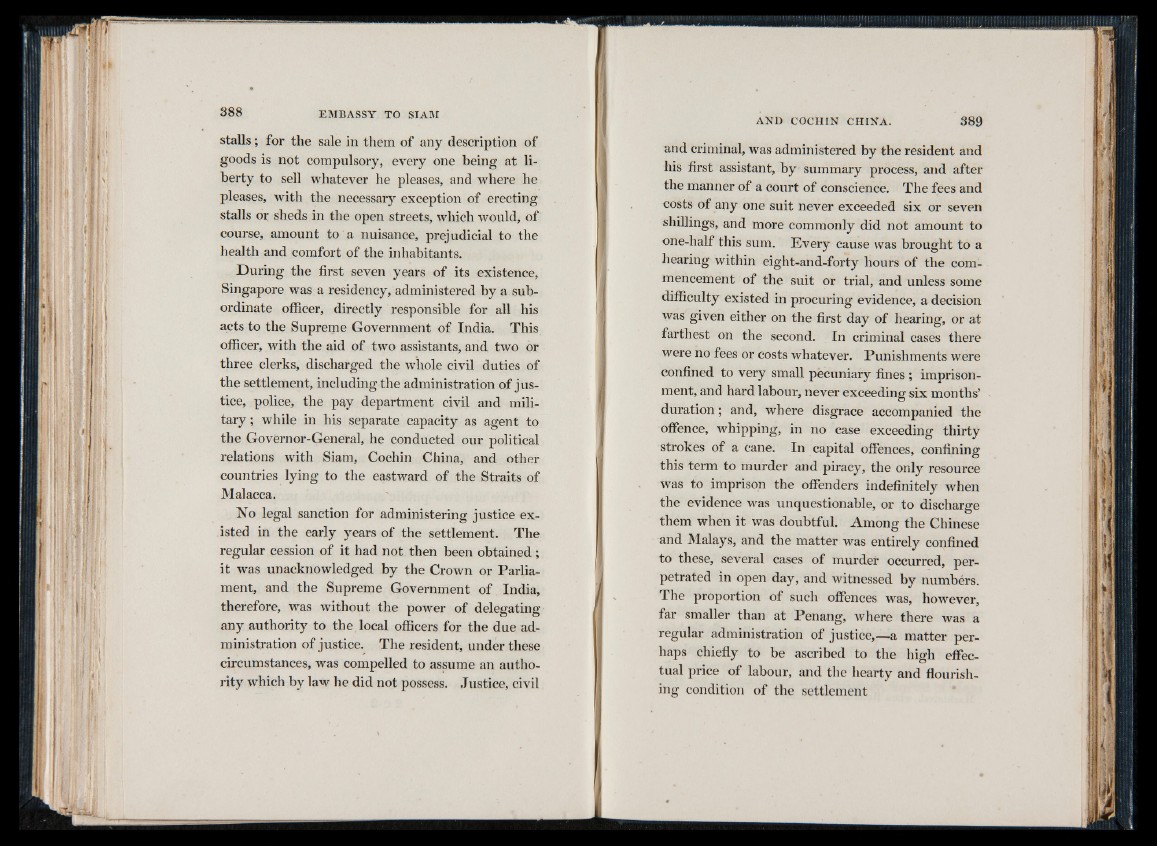
stalls ; for the sale in them of any description of
goods is not compulsory, every one being at liberty
to sell whatever he pleases, and where he
pleases, with the necessary exception of erecting
stalls or sheds in the open streets, which would, of
course, amount to a nuisance, prejudicial to the
health and comfort of the inhabitants.
During the first seven years of its existence,
Singapore was a residency, administered by a subordinate
officer, directly responsible for all his
acts to the Supreme Government of India. This
officer, with the aid of two assistants, and two or
three clerks, discharged the whole civil duties of
the settlement, including the administration of justice,
police, the pay department civil and military;
while in his separate capacity as agent to
the Govern or-General, he conducted our political
relations with Siam, Cochin China, and other
countries lying to the eastward of the Straits of
Malacca.
No legal sanction for administering justice existed
in the early years of the settlement. The
regular cession of it had not then been obtained ;
it was unacknowledged by the Crown or Parliament,
and the Supreme Government of India,
therefore, was without the power of delegating
any authority to the local officers for the due administration
of justice. The resident, under these
circumstances, was compelled to assume an authority
which by law he did not possess. Justice, civil
and criminal, was administered by the resident and
his first assistant, by summary process, and after
the manner of a court of conscience. The fees and
costs of any one suit never exceeded six or seven
shillings, and more commonly did not amount to
one-half this sum. Every cause was brought to a
hearing within eight-and-forty hours of the commencement
of the suit or trial, and unless some
difficulty existed in procuring evidence, a decision
was given either on the first day of hearing, or at
farthest on the second. In criminal cases there
were no fees or costs whatever. Punishments were
confined to very small pecuniary fines ; imprisonment,
and hard labour, never exceeding six months’
duration; and, where disgrace accompanied the
offence, whipping, in no case exceeding thirty
strokes of a cane. In capital offences, confining
this term to murder and piracy, the only resource
was to imprison the offenders indefinitely when
the evidence was unquestionable, or to discharge
them when it was doubtful. Among the Chinese
and Malays, and the matter was entirely confined
to these, several cases of murder occurred, perpetrated
in open day, and witnessed by numbers.
The proportion of such offences was, however,
far smaller than at Penang, where there was a
regular administration of justice,—a matter perhaps
chiefly to be ascribed to the high effectual
price of labour, and the hearty and flourishing
condition of the settlement